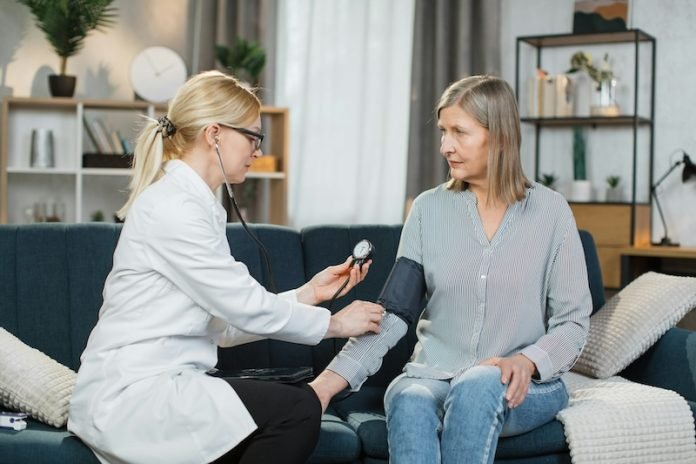
High blood pressure, also known as hypertension, is a condition that doesn’t play favorites, affecting men and women across various age groups. However, women over the age of 50 face unique risks and symptoms that deserve special attention.
This article breaks down what you need to know about high blood pressure in women over 50, using straightforward language to make the science behind this condition accessible to everyone.
As we age, our bodies undergo various changes, and for women, one significant milestone is menopause, which typically occurs in the late 40s or early 50s. Menopause brings about hormonal changes that can increase the risk of developing high blood pressure.
Estrogen, a hormone that plays a role in keeping blood vessels flexible, decreases during menopause, potentially making women more susceptible to hypertension.
But why is high blood pressure such a concern? At its core, hypertension means that the force of blood pushing against the walls of your arteries is consistently too high.
Over time, this increased pressure can damage blood vessels and lead to heart disease, stroke, and other health problems. It’s often called the “silent killer” because it can quietly damage your body for years before symptoms become noticeable.
For women over 50, the symptoms of high blood pressure may not be obvious at first.
Some may experience headaches, shortness of breath, or nosebleeds, but these symptoms aren’t specific to hypertension and can easily be mistaken for signs of less serious conditions. This is why regular blood pressure check-ups are crucial, especially as you age.
Research evidence underscores the importance of monitoring and managing high blood pressure. Studies show that the risk of cardiovascular diseases significantly increases with hypertension, highlighting the need for early detection and treatment.
Lifestyle factors play a crucial role in both the prevention and management of high blood pressure. These include maintaining a healthy diet rich in fruits, vegetables, and whole grains; engaging in regular physical activity; limiting alcohol consumption; avoiding smoking; and managing stress.
Medication may also be necessary for some women to control their blood pressure effectively. However, treatment plans should be personalized, taking into account the individual’s health status, potential side effects, and the specific needs of women over 50.
Research continues to evolve in understanding hypertension in women over 50. Recent studies focus on the interaction between blood pressure and other post-menopausal symptoms, as well as the role of specific lifestyle interventions and medications in managing hypertension within this demographic.
These insights are crucial for developing targeted strategies that can improve the quality of life and health outcomes for women in this age group.
In summary, high blood pressure in women over 50 is a significant health concern that warrants attention and action. Regular check-ups, a healthy lifestyle, and, when necessary, medication, are key to managing this condition.
By staying informed and proactive, women can protect their heart health and enjoy a vibrant life beyond 50. Understanding the unique challenges and opportunities for managing high blood pressure in this phase of life is not just beneficial—it could be life-saving.
If you care about high blood pressure, please read studies about potatoes and high blood pressure, and top 10 choices for a blood pressure-friendly diet
For more information about high blood pressure, please see recent studies about impact of vitamins on high blood pressure you need to know, and the powerful link between high blood pressure and a potassium-rich diet.
Copyright © 2024 Knowridge Science Report. All rights reserved.



